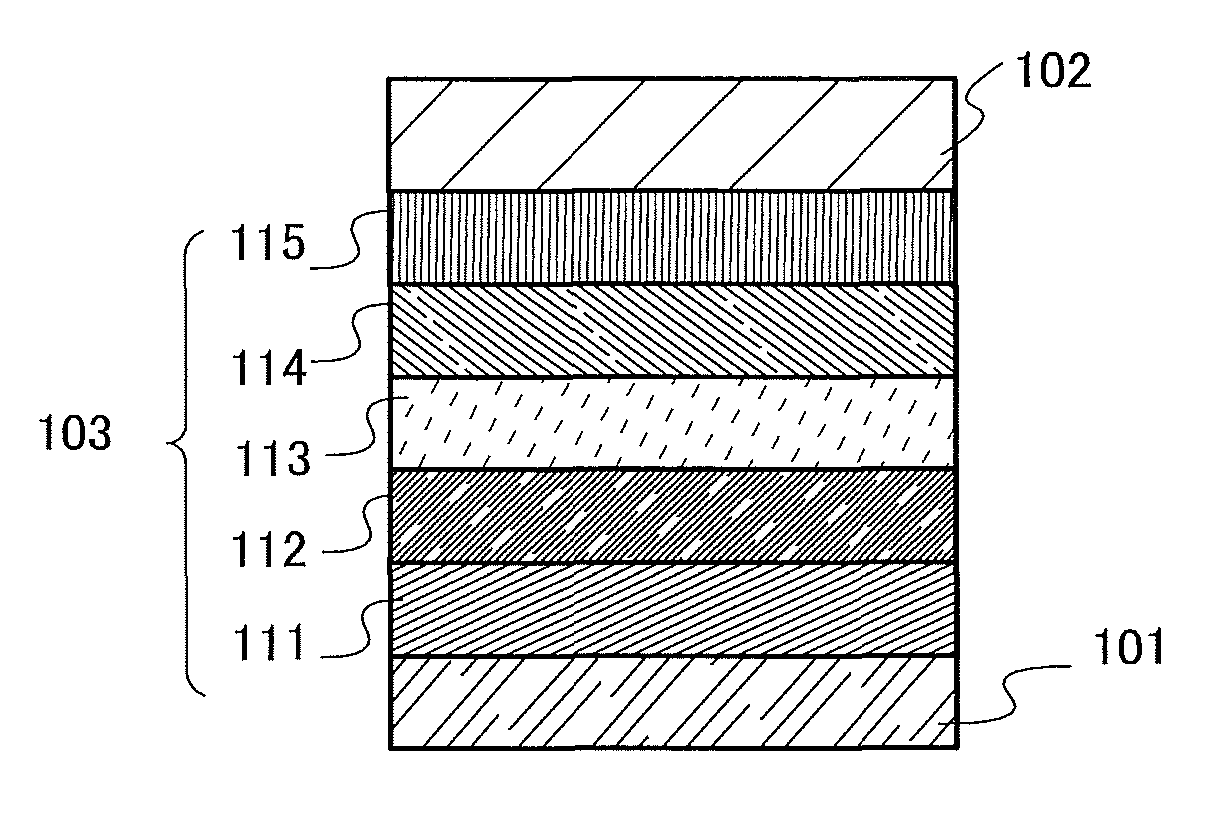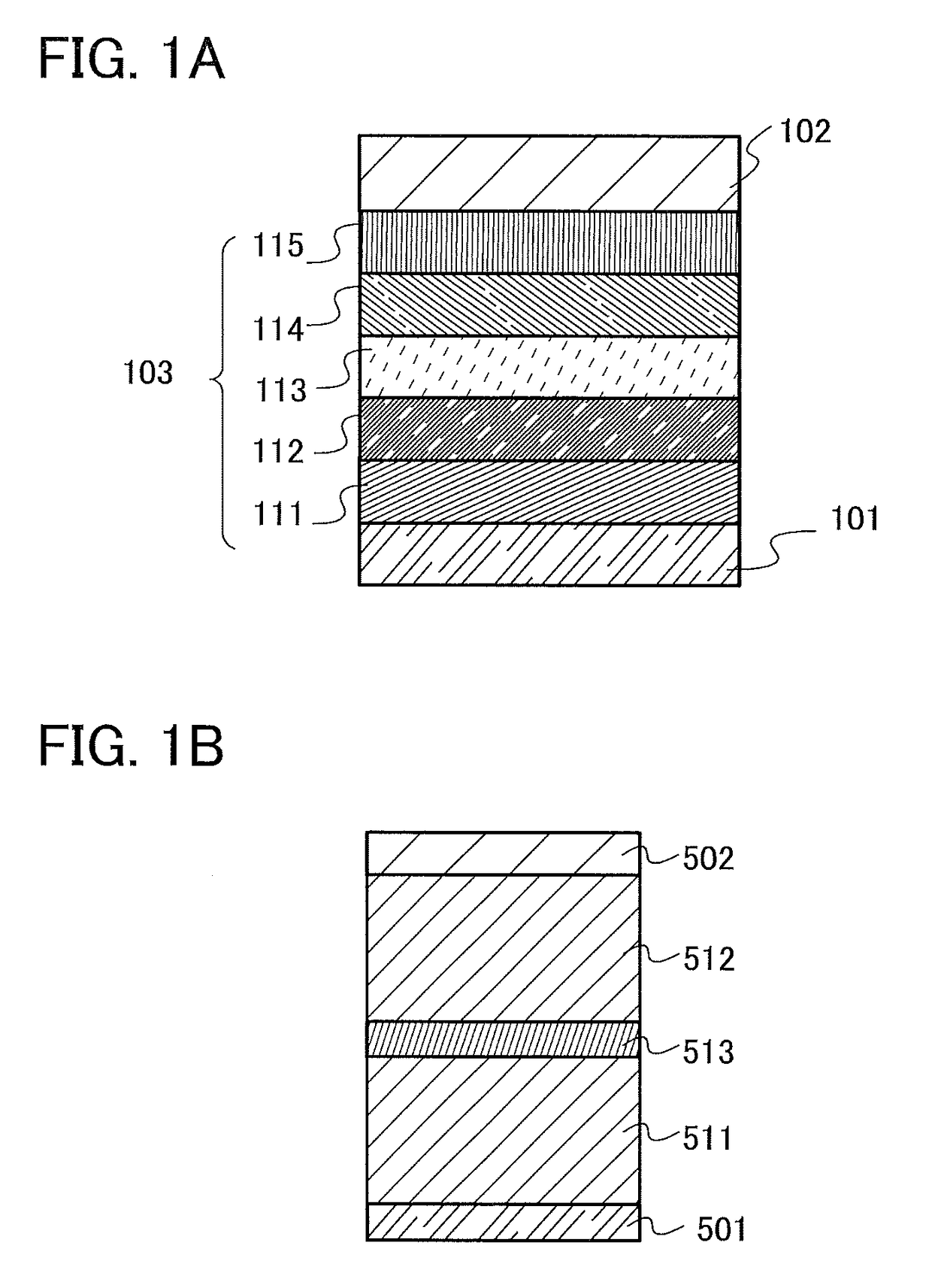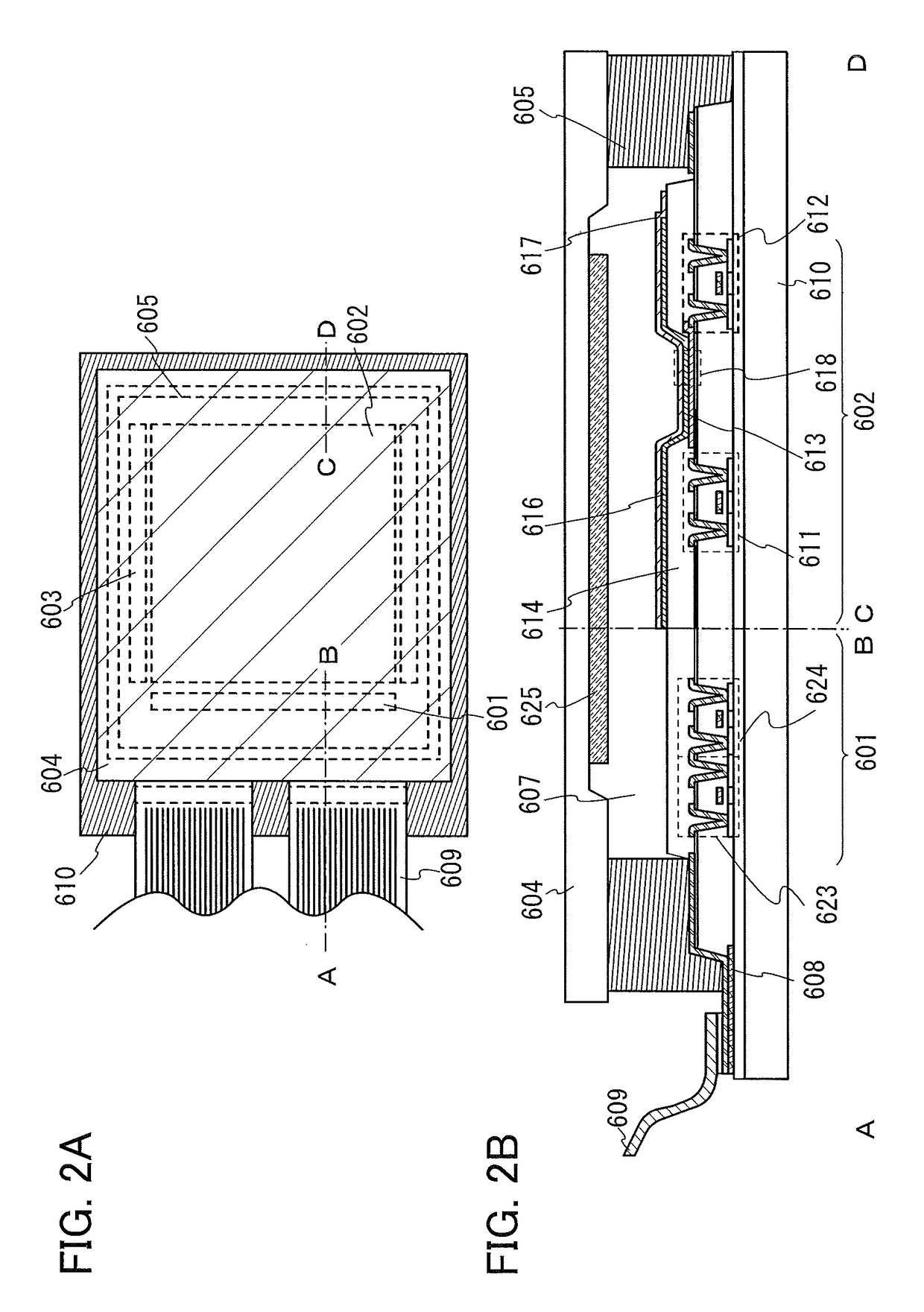Organic compound, light-emitting element, light-emitting device, display device, electronic device, and lighting device
a technology of light-emitting elements and organic compounds, which is applied in the field of organic compounds, can solve the problems of reducing efficiency and preventing efficient light emission from certain substances, and achieve the effects of high efficiency, efficient light emission, and high emission efficiency
- Summary
- Abstract
- Description
- Claims
- Application Information
AI Technical Summary
Benefits of technology
Problems solved by technology
Method used
Image
Examples
embodiment 1
[0093]As one embodiment of the present invention for achieving any of the above objects, a novel organic compound with a triarylamine skeleton in which the three aryl groups of the triarylamine skeleton are a p-biphenyl group, a fluoren-2-yl group, and a phenyl group to which a dibenzofuranyl group or a dibenzothiophenyl group is bonded will be described in this embodiment.
[0094]Three aryl groups are bonded to nitrogen of a triarylamine skeleton. In an organic compound in this embodiment, the three aryl groups are a p-biphenyl group, a fluoren-2-yl group, and a phenyl group to which a dibenzofuranyl group or a dibenzothiophenyl group is bonded.
[0095]The carbon at the 9-position of the fluoren-2-yl group may have one or two substituents, which are separately any one of an alkyl group having 1 to 6 carbon atoms and a phenyl group. When both of the substituents are phenyl groups, the phenyl groups may be bonded to each other to form a spirofluorene skeleton.
[0096]Further, the dibenzofu...
embodiment 2
[0121]In this embodiment, description is given of a structure of a light-emitting element in which the organic compound described in Embodiment 1 is used as one of two kinds of substances forming an exciplex.
[0122]As a method for converting a triplet excited state into light emission, there are a method utilizing phosphorescence, which is direct emission from a triplet excited state, and a method utilizing delayed fluorescence, which is light emitted from a singlet excited state after a triplet excited state is turned into a singlet excited state via reverse intersystem crossing.
[0123]A structure of a light-emitting element that uses a phosphorescent material and emits light with extremely high efficiency has been actually reported, which proves advantages of the utilization of a triplet excited state for light emission.
[0124]Some degree of success in a light-emitting element using a delayed fluorescence material has been achieved in recent years. However, a substance emitting delay...
embodiment 3
[0143]In this embodiment, description is given of the light-emitting element in Embodiment 2 in which the light-emitting layer further contains a phosphorescent substance and which emits light from the phosphorescent substance. The light-emitting element in this embodiment has the same structure as the light-emitting element in Embodiment 2 except that the light-emitting layer contains the phosphorescent substance. Description of the common structures and materials is not repeated. The corresponding description in Embodiment 2 is to be referred to.
[0144]Because the light-emitting layer contains the phosphorescent substance, efficient energy transfer from an exciplex to the phosphorescent substance can be performed.
[0145]Here, to achieve high emission efficiency of a light-emitting element that uses a phosphorescent substance, energy transfer between the host material and the phosphorescent substance will be considered. Carrier recombination occurs in both the host material and the p...
PUM
 Login to View More
Login to View More Abstract
Description
Claims
Application Information
 Login to View More
Login to View More - R&D
- Intellectual Property
- Life Sciences
- Materials
- Tech Scout
- Unparalleled Data Quality
- Higher Quality Content
- 60% Fewer Hallucinations
Browse by: Latest US Patents, China's latest patents, Technical Efficacy Thesaurus, Application Domain, Technology Topic, Popular Technical Reports.
© 2025 PatSnap. All rights reserved.Legal|Privacy policy|Modern Slavery Act Transparency Statement|Sitemap|About US| Contact US: help@patsnap.com



